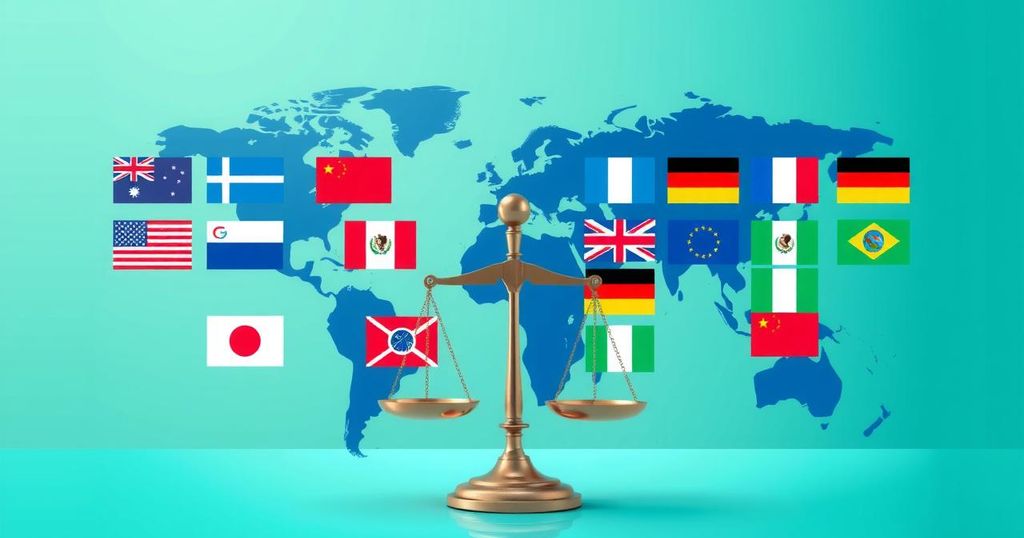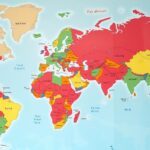Politics
AFGHANISTAN, AFRICA, ASIA, BENNETT, CHILE, CONFLICT RESOLUTION, COUNCIL, EUROPE, HUMAN RIGHTS COUNCIL, HUMAN_RIGHTS, HUMANITARIAN ASSISTANCE, ICELAND, INTERNATIONAL RELATIONS, PEACEKEEPING, RICHARD BENNETT, SOUTH AFRICA, SOUTH AMERICA, TALIBAN, UN RIGHTS COUNCIL, UNITED NATIONS HUMAN RIGHTS COUNCIL
Dante Raeburn
Countries Urge UN Human Rights Council for Accountability in Afghanistan
Iceland, Chile, and South Africa have called for the UN Human Rights Council to create an independent mechanism to address human rights abuses in Afghanistan. Richard Bennett, the special rapporteur, emphasized the necessity of such an initiative to hold perpetrators accountable, particularly for the oppression of women and girls under the Taliban’s rule. The lack of action from the EU has prompted frustrations, urging other nations to lead efforts for accountability.
In a recent development, a coalition of countries, spearheaded by Iceland and supported by Chile and South Africa, has urged the United Nations Human Rights Council to enhance accountability for human rights violations in Afghanistan. Their statement advocates for the establishment of an independent investigative mechanism with a thorough mandate, aimed at complementing the efforts of the UN Special Rapporteur on Afghanistan.
Richard Bennett, the Special Rapporteur, previously cautioned that the lack of accountability for the Taliban’s actions has intensified their oppression of women and girls. In his report submitted to the Human Rights Council in February, Bennett encouraged member states to establish a dedicated investigative mechanism to aid in holding offenders accountable.
The joint appeal highlights increasing dissatisfaction with the European Union’s hesitance, as the “penholder” on Afghanistan, to spearhead the development of an accountability framework within the council. While the EU has been instrumental in bolstering the special rapporteur’s mandate, there is a consensus that an intensified approach is necessary to effectively address the ongoing situation in Afghanistan.
Since the Taliban’s resurgence in August 2021, both Afghan and international civil society groups have persistently called for an independent mechanism tasked with investigating serious human rights violations in Afghanistan. They assert that such a framework could significantly advance efforts to hold the Taliban accountable for their systematic oppression of women and girls, thereby supporting initiatives at the International Criminal Court and other legal avenues.
Despite acknowledging the need for heightened accountability concerning international crimes in Afghanistan, the latest EU-led resolution notably refrained from proposing a concrete accountability mechanism. Everyday, Afghan citizens, especially women and girls, endure severe abuses that risk being obscured or obliterated. The EU must endeavor to ensure that those responsible for these abuses are brought to justice, emphasizing the importance of establishing a comprehensive accountability mechanism. Should the EU continue to shirk this responsibility, countries backing the joint statement may need to take the initiative themselves.
In summary, the international community, led by Iceland, Chile, and South Africa, is urging the UN Human Rights Council to establish a robust accountability mechanism for human rights abuses in Afghanistan. The call is prompted by ongoing violations since the Taliban’s return to power, especially against women and girls. The need for an independent investigative body is underscored by the potential loss of critical evidence and the imperative for justice. If the EU fails to act decisively, other countries must step forward to ensure accountability.
Original Source: www.hrw.org








Post Comment